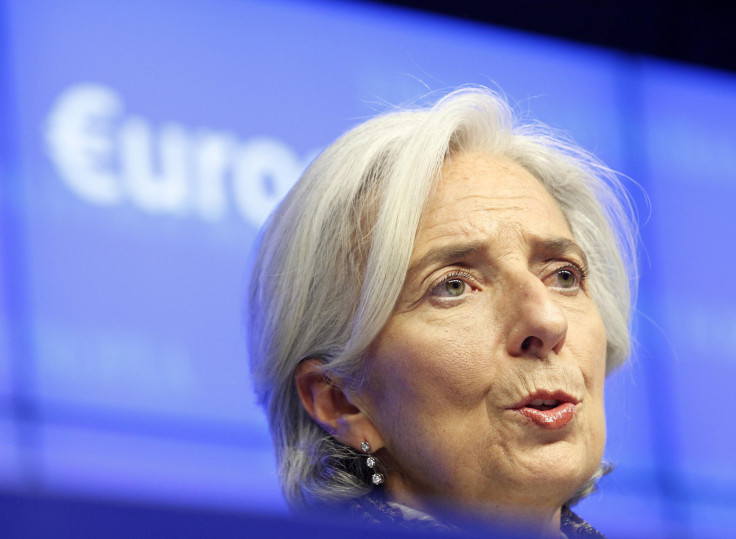Lagarde Backs Bank Of Japan Easing, Stands By Euro

IMF chief Christine Lagarde on Sunday welcomed the Bank of Japan’s aggressive easing program as a helpful step to support global growth.
“Monetary policies — including unconventional measures — have helped prop up the advanced economies, and, in turn, global growth. The reforms just announced by the Bank of Japan are another welcome step in this direction,” said Lagarde, the International Monetary Fund’s managing director, in a speech to an Asian economic conference in Hainan, China, MarketWatch reports.
New BOJ governor Haruhiko Kuroda last week announced a major expansion of purchases of Japanese government bonds. The central bank will buy so many that their amount outstanding will increase at an annual pace of about ¥50 trillion ($530 billion). The steps are designed to boost inflation to a 2 percent rate.
Lagarde cautioned, however, that monetary policy cannot “shoulder the lion’s share” of the effort to spur growth.
“There could also be unintended consequences — including from exit — that policy makers need to plan and watch for,” Lagarde said.
She said that Japan also needs to find a lasting way to lower its budget deficit.
Taking questions after her speech, Lagarde insisted the euro has a solid future as she expressed hopes no more EU countries will need bailouts.
"I think the collective political will ... to maintain, defend, protect and enhance the monetary zone and currency zone has been largely underestimated," she said, according to the Telegraph newspaper of Australia.
Referring to the Cyprus bailout, she noted, "My dearest hope is that there is not yet another country down the line that needs to be repaired and that could require support from both the European partners and the IMF."
Lagarde added, however, that Cyprus represented a unique case and reminded her audience the country's economy amounted to a mere 0.2 per cent of Europe's economy.
"I don't mean to be derogatory about this country, but it was a very specific case in many respects," she added, citing factors such as the the size of the banking sector relative to the Cyprus economy. Lagarde also said she hoped European authorities would learn from experiences over the past couple of years and "decide to accelerate the consolidation of their currency zone".
The IMF is set to release an update on the global economy in the coming week.
In a brief preview, without the numbers, Lagarde said the report would show, “a substantial portion of the global economy looks better today than it did last year.”
© Copyright IBTimes 2024. All rights reserved.





















